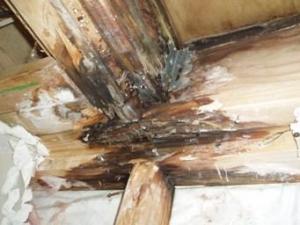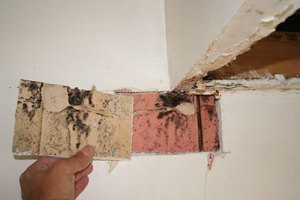
One of the most frequent problems that migrants from developed countries have is with the condition of the housing stock in New Zealand. Much of it is wooden framed, ranging from old Kauri villas to mansions and there are often problems associated with dampness, lack of adequate heating and poor insulation.
There has been a lot of coverage in recent years of a phenomenon called “leaky homes syndrome,” it’s just another way of describing weather tightness issues and it affects all sorts of buildings – right through from apartment blocks, to townhouses and million dollar homes. For more information see http://www.nailed.co.nz/The_Problem_Explained_943.aspx
If you are thinking about purchasing a property in New Zealand be sure to have a full and proper inspection carried out and make it a condition of the sale that the report be satisfactory.

Most of the houses are timber framed with a skin to keep the weather out – this could be comprised of overlapping boards, plywood, thin brick veneer, metal sheets, plaster or other materials. In older houses there is often no insulation in either the external walls or roof voids, this can cause problems with heat retention during the winter, or over-heating during the summer. Condensation on cold external surfaces is also a problem and this can lead to fungal growth and unhealthy living conditions.
Many houses are built on piles which are usually wooden and can be prone to rot, suspended floors are often uninsulated and draughty.
Problems such as these have resulted in changes being made to the building code to ensure that adequate insulation and, where needed, double glazing is fitted as standard to new homes. However, despite the low winter temperatures in some parts of New Zealand there is seldom any provision for heating other than an open fire or wood burner. Some home owners are installing heat pumps (a type of electric fan heater) but these can be expensive to buy, fit and operate. Heat pumps may also be used to dehumidify and cool the air.
New Zealand has the second highest prevalence of asthma in the world and it is thought that mold spores in damp homes, dust mites and smoke from wood fires are three triggers for the disease.
What can you do?
- If you’re buying a house have it properly surveyed and if necessary set aside money to bring the house up to a standard that you are comfortable with. A house that faces north is desirable because of the amount of solar gain it will accumulate during the winter. Be wary of houses that are in valleys or shielded in some way from the winter sun.
- If you’re renting look very carefully for signs of damp or mold growth, check around window openings, the edges of carpets, in closets and linen cupboards. Also look for signs of water penetration and ask what type of insulation is present in the property. You will need to think about how you are going to heat the house in winter and whether or not to buy a dehumidifier.
to be continued…………..
http://www.nzherald.co.nz/business/news/article.cfm?c_id=3&objectid=10652061
“Once the inflation surge of late 2010 and early 2011 is taken into account, real house prices are likely to be down almost 20 per cent by the end of next year.”
The property investment gods will never have completely clay feet, because at least land is tangible, it’s not paper. But on a remote island with no industrial capacity, and everything being expensive to ship in or out, they have let the prices become remarkably inflated above the absolute value, and traded on the basis of those prices. You should not have to pay 400K just to get basic shelter from the rain, or a couple million for a view of some body of undrinkable water and a house you cannot afford to heat.
Image is everything. If the glossy brochure image stops working and money from outside stops pouring in, New Zealand will go back to being a long island in the middle of nowhere, full of hungry sheep, rabble inbred Anglo-Scots land-jobbers, and resentful Maori, everyone trying to suck a buck however they can and drinking themselves under the table to forget where they are. They have to keep ensuring that foreign money pours in. RWC will only benefit Auckland.
NZ is like Cinderella. Good advertising made her beautiful for a night, turned her rats and pumpkin into horses and a coach, and she went to the ball. But unless she can attract a prince who cares enough to schlep around trying a glass slipper on every girl in the village until he finds her again – which with increasingly good exposure of the level of hype, is unlikely – it’s back to cinder-shoveling sheep-herding, at the mercy of the global market stepsisters.
Baaaa!